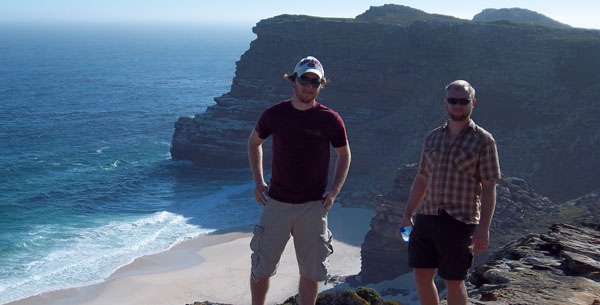GRADUATE STUDENTS
If you are interested in a graduate degree focusing on plant ecology, grassland ecology, or eco-physiology, send a letter of interest, qualifications, and contact information to Jesse Nippert. Alternatively, you may follow the guidelines outlined for graduate application in the Division of Biology (click on the 'Admission and Financial Support' tab) and list my name as a potential graduate mentor. The application deadline for the Fall semester is Dec. 15, and the deadline for Spring semester is Aug 1.
Multiple Ph.D. fellowships are available in the Division of Biology through the Ecology, Evolution and Genomics in Changing Environments Program (NSF - GAANN). This is a prestigous fellowship with a wonderful stipend and research support for new students. Please check out the EEG webpage for more information.
Why study at KSU?
The Division of Biology at KSU has an outstanding group of over 30 faculty and staff scientists focused on grassland ecology. With the Konza Prairie Biological Station as the central hub of this research, we are the premier department focused on tallgrass prairie ecology, with research ranging from organismal, community, ecosystem and global change science. Every summer, national and international scientists migrate to the Konza Prairie for field research, providing our students many opportunities for collaboration, networking, and scientific development. This unique opportunity allows our students to learn from the best grassland ecologists, whether they are local faculty, or internationally recognized visiting scientists.
The Division of Biology maintains a friendly, interactive environment, encouraging collaboration between students, faculty, and staff. Additionally, and most importantly for YOU, all graduate students accepted by the department are guaranteed financial support for the duration of their degree (pending reasonable progress towards degree completion).
KSU has the top Biology/Ecology Program in Kansas (in terms of funding and publications), and is one of the most competitve programs in the Midwest, USA. KSU has 21,000+ students, in a typical university setting providing students dynamic academic, athletic, and cultural opportunities.
KSU is located in Manhattan, KS, approximately 2 hours west of Kansas City, in the scenic Flint Hills Region. Recreational opportunities include organized sports, hiking, camping, fishing, boating, and biking.
My style of mentorship:
I maintain a very relaxed style of mentorship, focused on providing each student every opportunity to succeed and the satisfaction of knowing their successes are a reflection of their individual effort. I encourage students to independently develop their ideas and projects complementary to the objectives of active projects in the ecophys lab. I strongly encourage independence, curiosity, and innovation among my students. You will learn more and gain more satisfaction by testing your hypotheses, rather than just completing the steps outlined by me. I am willing to spend more time and effort developing clear research goals and protocols with students seeking a Master's degree. I expect doctorate students to display scholarship, dedication, and independence at the onset of progress towards a Ph.D. To assist in your own success, students should have already achieved a Master's degree, or have exemplary research experience prior to beginning a doctoral program.
I work best with self-motivated, enthusiastic individuals that are excited about their research and are willing to work hard, both alone and with others. Innovative science involves taking risks and following leads that don't always result in the predicted outcome. While short-term failures are sometimes unavoidable, the ability to seek positive solutions and self-motivate towards goals is an invaluable trait among students. I will do everything I can to give you the greatest potential for professional success, while allowing you the experience of scientific progress and peril that are inherent as academics.
If you are interested in a research assistant position, contact Jesse to see what our current needs are. RA positions will include a mix of laboratory and field work in Bushnell and Ackert Halls, as well as the Konza Prairie Biological Station. Routine tasks will include assisting with sample preparation at the Stable Isotope Mass Spectrometry Laboratory (SIMSL), preparing samples for isotopic analysis, collecting grass and root samples on Konza.
Research Experience for Undergraduates (REU)
The Research Experiences for Undergraduates (REU) program supports active research participation by undergraduate students in any of the areas of research funded by the National Science Foundation. REU projects involve students in meaningful ways in ongoing research programs. The REU program provides educational opportunities for undergraduate students and also provides indirect funding for undergraduate students to participate in research.
The Konza Prairie sponsors several REU students each year in a 10-week summer program. This program allows undergraduate students to be involved in active tallgrass prairie research, to develop their own research project, a summer stipend, housing, and college credit. If you are interested in participating in the Konza Prairie REU program, and you would like to be involved in research in our lab, please contact me to discuss opportunities.
